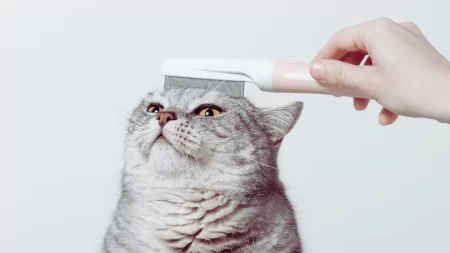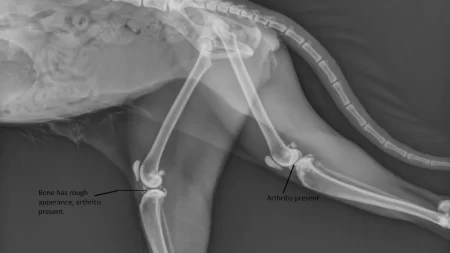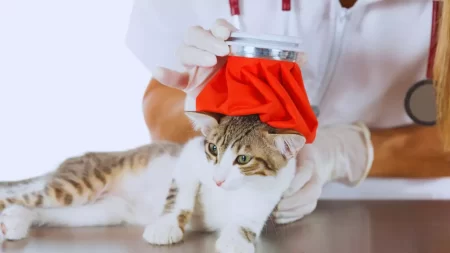No, in most cases. A TT injection, or tetanus toxoid injection, is a vaccine that protects against tetanus, a serious bacterial infection that affects the nervous system.
Tetanus is not transmitted by cat scratches, but by contaminated soil or objects that enter deep wounds.
Therefore, a TT injection is not required for a cat scratch, unless the wound is very deep or dirty, and you have not had a booster shot in the last 10 years.
In this article, we will explain more about TT injections, the risks of cat scratches, and the steps to take if you are scratched by a cat.
Understanding TT Injections
What are TT Injections?
A TT injection is a vaccine that contains a weakened form of the tetanus toxin, which stimulates the immune system to produce antibodies against tetanus. Tetanus is a rare but potentially fatal disease caused by the bacterium Clostridium tetani, which produces a toxin that affects the nerves and muscles, causing spasms and paralysis. Tetanus can be prevented by getting vaccinated with the TT injection, usually as part of a combination vaccine that also protects against diphtheria and pertussis (whooping cough).
When are they typically given?
The TT injection is usually given as part of a routine childhood immunization schedule. The recommended schedule is to receive five doses of the vaccine: one at 2 months, 4 months, 6 months, 15 to 18 months, and 4 to 6 years of age. A booster dose is recommended every 10 years for adults to maintain immunity.
What is the purpose of a TT Injection?
The purpose of a TT injection is to prevent tetanus infection in case of exposure to the bacteria. Tetanus bacteria are commonly found in soil, dust, and animal feces, and can enter the body through cuts, burns, punctures, or other wounds. The bacteria produce a toxin that affects the nerves and muscles, causing symptoms such as stiffness, spasms, lockjaw, difficulty breathing, and seizures. Tetanus can be fatal if not treated promptly with antibiotics and antitoxin. A TT injection can prevent or reduce the severity of tetanus infection by providing immunity against the toxin.
Risks of Cat Scratches
1. Cat Scratch Fever
Cat scratch fever, or cat scratch disease (CSD), is an infection caused by another bacterium called Bartonella henselae, which is carried by some cats in their saliva or under their claws. CSD can be transmitted to humans when an infected cat scratches or bites them, or licks an open wound. CSD usually causes mild symptoms such as a red bump or blister at the site of the scratch or bite, swollen lymph nodes near the affected area, fever, headache, fatigue, and loss of appetite. CSD usually goes away on its own within a few weeks or months, but in rare cases, it can cause serious complications such as inflammation of the heart, eyes, brain, or other organs. CSD can be treated with antibiotics if needed.
2. Bacterial Infections
Cat scratches can also cause bacterial infections from other types of bacteria that may be present on the cat’s skin or claws. These infections can cause redness, swelling, pain, pus, or warmth around the wound. Some common bacteria that can cause infections from cat scratches are Staphylococcus aureus (staph), Streptococcus pyogenes (strep), Pasteurella multocida (pasteurella), and Capnocytophaga canimorsus (capnocytophaga). These infections can be treated with antibiotics if they are severe or do not heal on their own.
3. Allergic Reactions
Cat scratches may cause allergic reactions in those sensitive to cats or their saliva. An allergic response might produce itching, hives, rashes, swelling, watery eyes, sneezing, and runny nose. Mild or severe allergic reactions may be managed with antihistamines or corticosteroids. Rarely, an allergic response may produce life-threatening anaphylaxis, which includes difficulty breathing, low blood pressure, fast pulse, nausea, vomiting, and loss of consciousness. Anaphylaxis needs prompt medical intervention and epinephrine.
Steps to Take if Scratched by a Cat
Clean the Wound Immediately
If you are scratched by a cat, you should wash the wound thoroughly with soap and water as soon as possible. This will help remove any dirt or bacteria that may cause infection or inflammation. You should also apply an antiseptic cream or ointment to prevent infection and cover the wound with a clean bandage.
Monitor for Symptoms
You should monitor your wound and your general health for any signs of infection or allergic reaction after being scratched by a cat. If you notice any redness, swelling, pain, pus, fever, headache, fatigue, rash, hives, or difficulty breathing, you should seek medical attention as soon as possible. You may need antibiotics, antihistamines, or other medications to treat your condition.
Seek Medical Attention if necessary
You should also seek medical attention if you have not had a TT injection in the last 10 years and your wound is deep or dirty, as you may need a booster dose to prevent tetanus. You should also see a doctor if you have a weakened immune system, such as from HIV/AIDS, chemotherapy, or diabetes, as you may be more prone to complications from cat scratches. Your doctor will examine your wound and your symptoms and prescribe the appropriate treatment for you.







